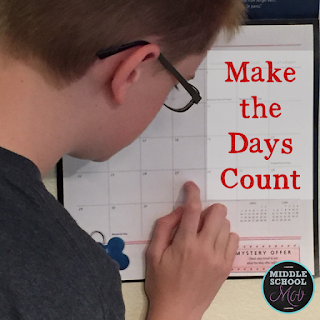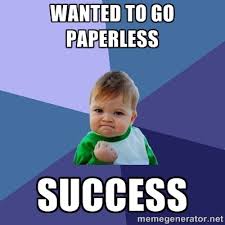The end of the school year is quickly approaching, and no major milestone is complete without a little reflection!
This year I embarked on the Great Paperless Quest of 2016, which is just a goofy way of saying that I hate dealing with paper. I've tried to approach everything this year through a paperless (or at least as-paperless-as-possible) lens, so when it came time for the obligatory end-of-year reflection activity, I naturally turned to my trusty friend Google Forms.
I compiled a list of questions for my students to fill out via Forms, which prompts them to reflect on their year while also providing me with valuable insight from all different perspectives. I encouraged my students to be honest while writing their responses and reminded them that they don't have to include their names (but many of them did, which was lovely).
In the end, I have a spreadsheet that is equal parts hilarious, interesting and insightful -- complete with some really great tips for next year and those weird things only middle schoolers would say (such as describing ELA with the adjectives "chunky" and "tasty").
Here are the questions I included this year:
- What was your favorite unit in language arts this year? Why?
- What was your least favorite unit in language arts this year? Why? What changes could make it better?
- What was your favorite part of this class? Why?
- What was the most challenging part of language arts for you this year? Why?
- What is one thing you've learned in this class?
- In what area do you feel you made your biggest improvements: reading or writing? Please explain your thinking.
- What is one thing you've accomplished this year that you're particularly proud of? (Doesn't have to be ELA related)
- As a teacher, is there anything I could have done differently to help you or make your experience in this class better? Please explain. (*I was nervous to include this question but I'm so glad I did. The responses were honest and so thoughtful.)
- What advice would you give to students who will be in this class next year?
- Describe your experience in language arts this year using three adjectives.
- Final thoughts (optional)













































